The Providence College Humanities Forum SP2025

Spring 2025 Humanities Forum Schedule
The Humanities Forum is an opportunity for members of the Providence College community to engage regularly in intellectual life outside of the classroom, deepen their appreciation for the humanities, and explore diverse perspectives from on and off campus. All are welcome.
If you do not have a Providence College email address, you may request to receive our regular email announcements by sending an email to pbelcher@providence.edu.
January 24, 2025
In collaboration with the Gladys Brooks Foundation

Fearless Speech: Radical Truth-Telling in the Auto/biography of John Swanson Jacobs
Jonathan Schroeder
Lecturer, Rhode Island School of Design
Friday, January 24 at 3:30 p.m. Ruane Center for the Humanities 105
For one hundred and sixty-nine years, a first-person slave narrative written by John Swanson Jacobs—brother of Harriet Jacobs—was buried in a pile of newspapers in Australia. Jacobs’s long-lost narrative, The United States Governed by Six Hundred Thousand Despots, is a startling and revolutionary discovery. A document like this—written by an ex-slave and ex-American, in language charged with all that can be said about America outside America, untampered with and unedited by white abolitionists—has never been seen before. A radical abolitionist, sailor, and miner, John Jacobs has a life story that is as global as it is American. In this talk, Schroeder will consider how truth-telling—which Michel Foucault links to the ancient concept of parrhesia, or “fearless speech”—assumes a modern form in John Jacobs’s writing as a style that constitutes at once a radical denunciation of American injustice and a spectacular performance of autobiographical freedom.
Read more about this event.
Jonathan D. S. Schroeder is a historian, literary critic, and lecturer at the Rhode Island School of Design. In 2016, shortly after receiving his PhD from the University of Chicago, he rediscovered John Swanson Jacobs’s long lost autobiographical slave narrative, The United States Governed by Six Hundred Thousand Despots: A True Story of Slavery, in an Australian archive. Republished by The University of Chicago Press in 2024 and profiled in the New York Times, NPR, and elsewhere, his edition returns this incredible narrative to America after 169 years, and features the first full-length biography of Harriet Jacobs’s globe-spanning brother, No Longer Yours: The Lives of John Swanson Jacobs.
Schroeder is also the co-editor of Ahab Unbound: Melville and the Material Turn, and the co-director of Congress of the Birds, a 501(c)3 organization that annually rescues, rehabilitates, and releases over 1,000 of Rhode Island’s native and migratory birds. The recipient of long-term fellowships from the National Endowment for the Humanities, the John Carter Brown Library, and the American Antiquarian Society, Schroeder is currently editing Lauren Berlant: A Reader, writing Prisoners of Loss: An Atlantic History of Nostalgia, and planning and building a 42-acre forest wildlife rehabilitation center in Chepachet, Rhode Island.
January 31, 2025
St. Thomas Aquinas Lecture

“No Mercy from a Distance”: Aquinas on Compassion and Natural Friendship
John O’Callaghan
Associate Professor of Philosophy at the University of Notre Dame
Friday, January 31 at 3:30 p.m.
Ruane Center for the Humanities 105
Mercy is often thought of in our culture as an act of forgiveness of some offense, whether civic or personal, that reduces or eliminates punishment that is due for that offense, and is dominated by questions of justice. That sense of mercy is hard to square with other uses of the term that suggest something more like assistance to those in need, as in the religious notion of “works of mercy” directed to the poor and suffering. It is also hard to square with the sense that mercy requires compassion, suffering with another, a compassion that is not necessarily required by forgiveness, and may even be at odds with the justice of punishment. Thomas Aquinas provides an account of mercy that helps us understand how it differs from forgiveness and necessarily involves compassion for those who suffer. The ground for his understanding of mercy is that such compassion is grounded in natural human friendship. But the idea of natural human friendship is perhaps even more at odds with our modern sensibilities in which we typically think that while justice binds us, we are nonetheless free to choose our friends as we like. If Aquinas is correct, we do not have such freedom, and are more bound by mercy grounded in natural friendship than we are by justice.
Read more about this event.
John O’Callaghan is associate professor of Philosophy and Director Emeritus of the Jacques Maritain Center at the University of Notre Dame. He was educated at St. Norbert College where he majored in physics and mathematics, and the University of Notre Dame (PhD, 1996) where he studied philosophy, writing on the philosophical work of Thomas Aquinas. He has taught at Creighton University, the University of Portland, and the University of Notre Dame. He has written or edited a number of books and articles in the area of Thomistic studies, including Thomist Realism and the Linguistic Turn (2003), and Recovering Nature (with Thomas Hibbs, 1999). He is a past president of the American Catholic Philosophical Association (2013) and is a permanent member of the Pontifical Academy of St. Thomas Aquinas appointed by Pope Benedict XVIth. He is a recipient of the Aquinas Medal from the University of Dallas. He is currently working on a book on Misericordia.
February 6, 2025
In collaboration with the Dialogue, Inclusion, and Democracy (DID) Lab
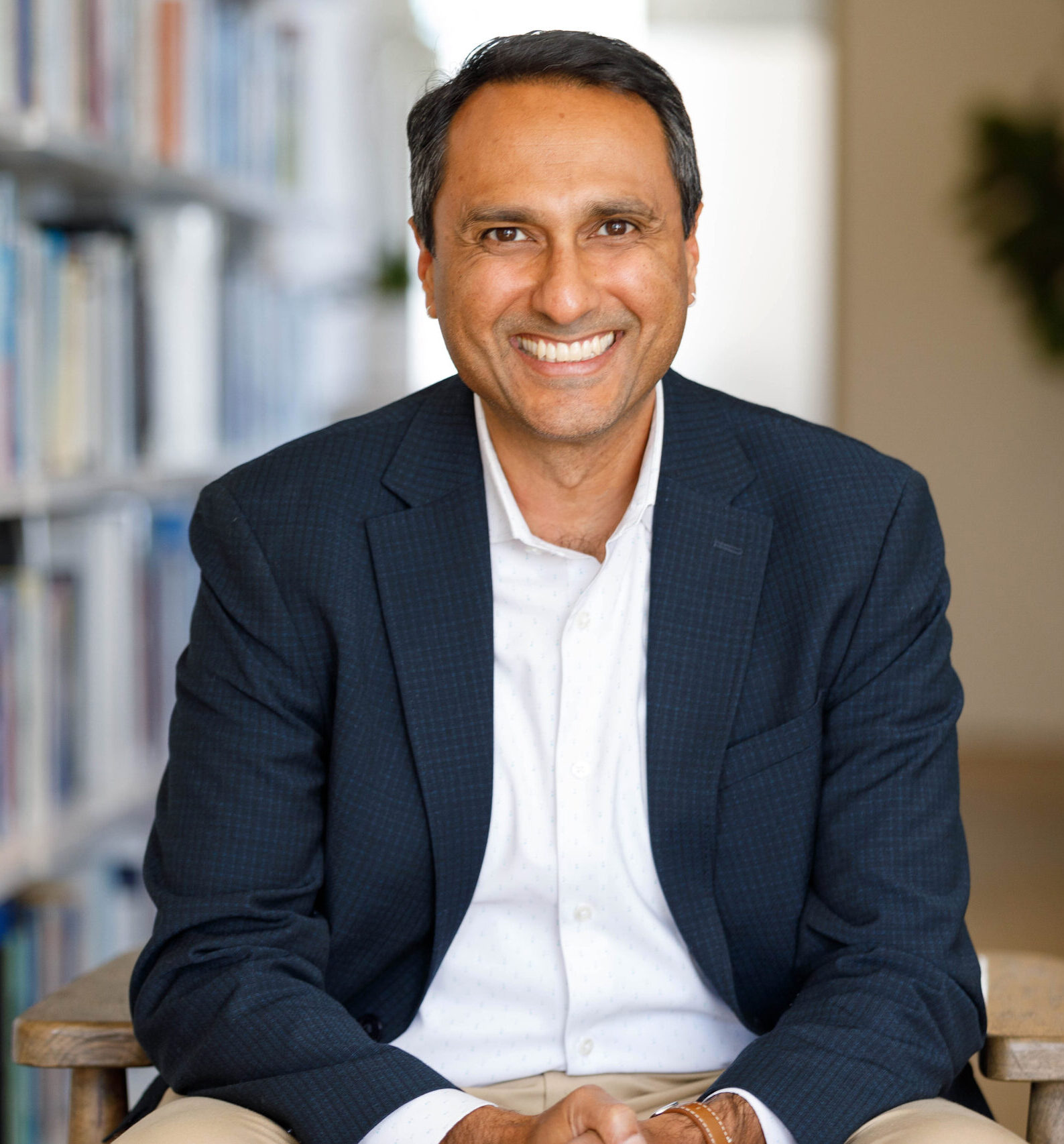
Diversity Is Not Just the Differences You Like: How Campuses Can Model Healthy Pluralism For the Nation
Eboo Patel
Founder and President, Interfaith America
Thursday, February 6 at 2:30 p.m.
Ruane Center for the Humanities 105
Diversity issues have dominated the headlines for decades, and that’s how it should be. The United States is the world’s first attempt at diverse democracy, and embracing our differences while maintaining our unity should be a top priority in the years ahead. Unfortunately, too much of the discourse is stuck in a binary “victim or villain” frame. In this talk, Founder and President Eboo Patel will trace the intellectual traditions of constructive diversity work, outline how campuses can model a healthy pluralism for the nation and demonstrate to students that they can be leaders for cooperation across differences.
Read more about this event.
Eboo Patel is a civic leader who believes that religious diversity is an essential and inspiring dimension of American democracy. Named “one of America’s best leaders” by U.S. News and World Report, Eboo is Founder and President of Interfaith America, the leading interfaith organization in the United States. Under his leadership, Interfaith America has worked with governments, universities, private companies, and civic organizations to make faith a bridge of cooperation rather than a barrier of division.
Eboo served on President Obama’s Inaugural Faith Council, has given hundreds of keynote addresses, and has written five books, including We Need to Build: Field Notes for Diverse Democracy. He is an Ashoka Fellow and holds a doctorate in the sociology of religion from Oxford University, where he studied on a Rhodes scholarship. Eboo lives in Chicago with his wife, Shehnaz, and their two sons.
February 13, 2025

The WEIRDest People in the World
Joseph Henrich
Professor of Biological Anthropology, Harvard University
Thursday, February 13 at 4:30 p.m.
Ruane Center for the Humanities 105
Over the last few decades, a growing body of research has revealed not only substantial global variation along several important psychological dimensions, but also that people from societies that are Western, Educated, Industrialized, Rich and Democratic (WEIRD) are particularly unusual, often anchoring the ends of global psychological distributions. To explain these patterns, I’ll first show how the most fundamental of human institutions—those governing marriage and the family—influence our motivations, perceptions, intuitions and emotions. Then, to explain the peculiar trajectory of European societies over the last two millennia, I lay out how one particular branch of Christianity systematically dismantled the intensive kin-based institutions in much of Latin Christendom, thereby altering people’s psychology and opening the door to the proliferation of new institutional forms, including voluntary associations (charter towns, universities and guilds), impersonal markets, individualistic religions and representative governments. In light of these findings, I close by arguing that the anthropological, psychological and economic sciences should adopt a unified evolutionary approach that considers not only how human nature influences our behavior and societies but also how the resulting institutions, technologies and languages subsequently shape our minds.
Read more about this event.
Joseph Henrich is currently the Ruth Moore Professor of Biological Anthropology in the Department of Human Evolutionary Biology at Harvard University. Before moving to Harvard, he was a professor of both Economics and Psychology at the University of British Columbia for nearly a decade, where he held the Canada Research Chair in Culture, Cognition and Coevolution. His research deploys evolutionary theory to understand how human psychology gives rise to cultural evolution and how this has shaped our species’ genetic evolution. Using insights generated from this approach, Professor Henrich has explored a variety of topics, including economic decision-making, social norms, fairness, religion, marriage, prestige, cooperation and innovation. He’s conducted long-term anthropological fieldwork in Peru, Chile and in the South Pacific, as well as having spearheaded several large comparative projects. In 2004 he won the Presidential Early Career Award for young scientists, and, in 2009, the Early Career Award for Distinguished Contributions bestowed by the Human Behavior and Evolution Society. In 2013-14, Dr. Henrich held the Peter and Charlotte Schoenenfeld Faculty Fellowship at NYU’s Stern School of Business. In 2018, the Society for Personality and Social Psychology awarded him the Wegner Prize for Theoretical Innovation. From 2010 to 2019, Dr. Henrich was a senior fellow in the Canadian Institute for Advanced Research in the Institutions, Organizations and Growth group and he became a fellow of the Cognitive Science Society in 2021. In 2016, he published The Secret of Our Success (Princeton) and in 2020, The WEIRDest People in the World: How the West became psychologically peculiar and particularly prosperous (FSG).
February 21, 2025
In collaboration with the Music Department
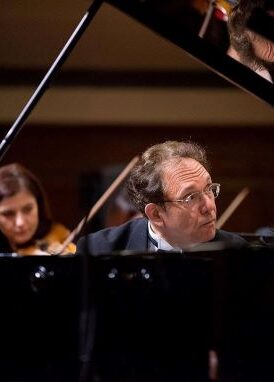
Who Counts as French? The Unusual Story of Jean Cras
Paul-André Bempechat
Concert pianist, scholar, and music teacher at Harvard University
Friday, February 21 at 3:30 p.m.
Smith Ryan Concert Hall
A lecture and performance on Jean Cras, French admiral, composer, and polymath. A very pious Catholic, his position as a career naval officer was threatened after the separation of Church and State in 1905, and his ability to navigate the politics and to uphold his spiritual convictions makes for interesting reflection on human nature and professionalism.
Read more about this event.
Paul-André Bempéchat is an award-winning concert pianist and scholar. Decorated as Chevalier de l’Ordre des Arts et des Lettres by the French Ministry of Culture, and as Honorary Fellow of the Royal Academic Chapel at Uppsala University, M. Bempéchat has toured in virtually every country in Europe, and most recently was the Artist-in-Residence at Sweden’s Uppsala University in 2023. Colleagues and critics alike have hailed him as a singularly lucid, introspective interpreter capable of drawing audiences into a near-palpable relationship with the select composers he performs.
February 28, 2025
Made possible by The Program for Leadership and Character at Wake Forest University
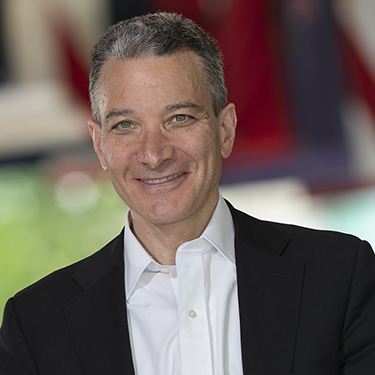
The Pursuit of Happiness: How Classical Writers on Virtue Inspired the Lives of the Founders and Defined America
Jeffrey Rosen
President and CEO, National Constitution Center
Friday, February 28 at 3:30 p.m.
Ruane Center for the Humanities 105
What did “the pursuit of happiness” mean to our nation’s Founders, and how did that famous phrase define their lives and become the foundation of our democracy? Jeffrey Rosen examines the most influential founders—Benjamin Franklin, George Washington, John Adams, Thomas Jefferson, James Madison, and Alexander Hamilton. By reading the classical Greek and Roman moral philosophers who inspired the Founders, Rosen shows us how they understood the pursuit of happiness as a quest for being good, not feeling good—the pursuit of lifelong virtue, not short-term pleasure. Among those virtues were the habits of industry, temperance, moderation, and sincerity, which the Founders viewed as part of a daily struggle for self-improvement, character development, and calm self-mastery. They believed that political self-government required personal self-government.
This presentation is made possible through the support of a grant from Wake Forest University and the Lilly Endowment, Inc. The opinions expressed at this event are those of the speaker and do not necessarily reflect the views of Wake Forest University or the Lilly Endowment, Inc.
Read more about this event.
Jeffrey Rosen is the president and CEO of the National Constitution Center where he is host of the weekly podcast, We the People. He is also a professor of law at the George Washington University Law School and a contributing editor of The Atlantic.
Rosen’s other books include the New York Times bestseller Conversations with RBG: Justice Ruth Bader Ginsburg on Life, Love, Liberty, and Law, as well as biographies of Louis Brandeis and William Howard Taft.
March 21, 2025
In collaboration with the C.S. Lewis Fellowship
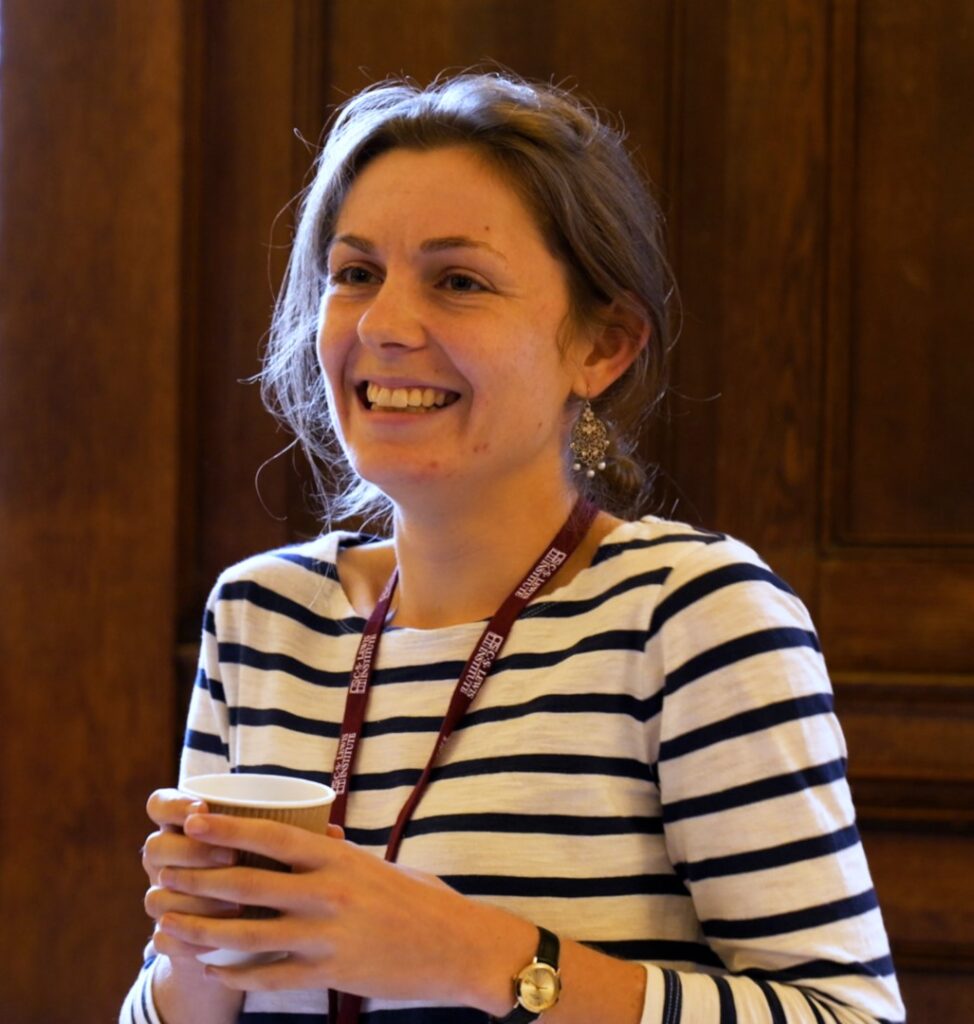
Exploring C.S. Lewis and Shakespeare
Sarah Waters
Assistant Professor of Language and Literature, Sterling College
Friday, March 21 at 3:30 p.m.
Ruane Center for the Humanities 105
“I am driven to literary examples because you, the reader, and I, do not live in the same neighbourhood” – so declares Lewis in his discussion of Affection in The Four Loves. Only a phrase before, he had referenced a Shakespeare play and its titular character. As this talk will show, Lewis frequently turns to Shakespeare as a frame of reference, in significant ways. Outlining some key areas of Lewis’s Shakespeare scholarship, this talk will explore the different ways Lewis engaged with Shakespeare in his wider writings, especially his apologetics, as we uncover some of the deeply personal reasons why Shakespeare becomes a critical touchstone and a key player in Lewis’s own story.
Read more about this event.
Sarah Waters is an expert in Shakespeare and C.S. Lewis. She regularly speaks internationally and also publishes on both of these writers, sometimes separately and sometimes together. She is currently working on a book on Lewis and Shakespeare, a chapter on Lewis’s work on Shakespeare for the new Routledge Companion to C.S. Lewis as well as an ever-growing handful of side projects including work on the Inklings and Shakespeare; female grief and voice in Shakespearean drama; and a number of publications emerging from some new discoveries she has made at the archives.
March 28, 2025
Opening address of the St. Nicholas of Myra Conference on Catholic Social Thought
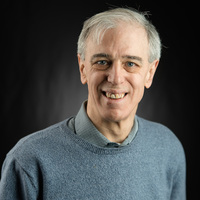
The Paradox of Dorothy Day: Humanism and Personalism.
Tom Jeannot
Professor of Philosophy at Gonzaga University
Friday, March 28 at 3:30 p.m.
Ruane Center for the Humanities 105
The paradox of Dorothy Day, the “Catholic Communist,” can be stated in one way by Dom Helder Camara’s aphorism: “When I feed the poor, they call me a saint. When I ask why the poor have no food, they call me a communist.” In another way, it can be stated as Day stated it herself in a letter to Stanley Vishnewski: “When it comes to the Catholic church, I go to the right as far as I can go. But when it comes to labor, pacifism and civil rights, then I go as far as I can to the left.” This paper investigates the paradox in a philosophical way, by developing a fundamental contrast between two forms of humanism, naturalistic humanism and Catholic and Christian personalism.
Read more about this event.
Tom Jeannot has been at Gonzaga since 1986. He works on moral philosophy, personalism, philosophical hermeneutics, Hegelian Marxism and Critical Theory, classical American philosophy, and the thought of Bernard Lonergan.
April 4, 2025
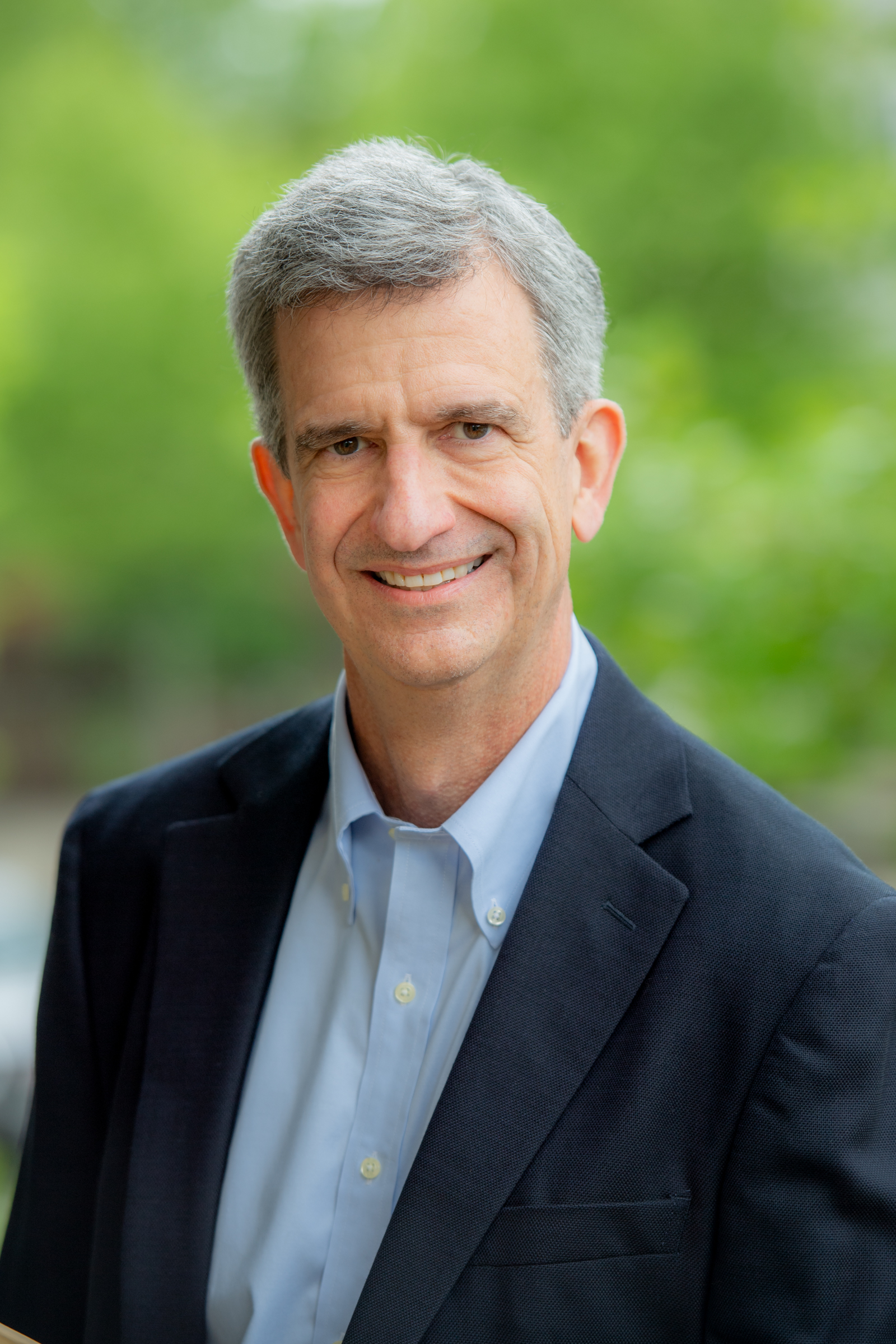
Lincoln’s Peace: The Struggle to End the American Civil War
Michael Vorenberg
Professor of History, Brown University
Friday, April 4 at 3:30 p.m.
Ruane Center for the Humanities 105
Michael Vorenberg transports us back to the precarious time between war and peace at the conclusion of the Civil War, the conflict at the core of American identity. When did the war truly end? Was it on April 9, 1865, as conventional wisdom holds, when Lee surrendered to Grant at Appomattox? Or was it ten weeks later on June 19—Juneteenth—when Black Americans in Galveston celebrated the end of slavery? Or was it a few days after that, when the Cherokee leader Stand Watie became the last Confederate general to surrender? Not until August 20, 1866, was there something like an official end, a mere declaration by President Andrew Johnson that the war was over, even as racial violence and political chaos continued to tear the country apart. The eye-opening story of the multiple endings and non-endings of the Civil War told by Vorenberg contains revelations about America’s greatest struggle and about war itself. To search for the Civil War’s endpoint is to grapple with the war’s true nature and legacy. It is to ask whether any war has an obvious ending, and who, if anyone, gets to say when it’s over.
Read more about this event
Michael Vorenberg is a professor of history at Brown University, in Providence, Rhode Island. He is the author of Final Freedom: The Civil War, the Abolition of Slavery, and the Thirteenth Amendment, which was a finalist for the Lincoln Prize and a key source for Steven Spielberg’s 2012 film, Lincoln. He is also the author of The Emancipation Proclamation: A Brief History with Documents, as well as a number of essays on slavery, emancipation, and the U.S. Constitution. His writings have appeared in the Chicago Tribune, The New York Times, Politico, and The Washington Post.
April 11, 2025
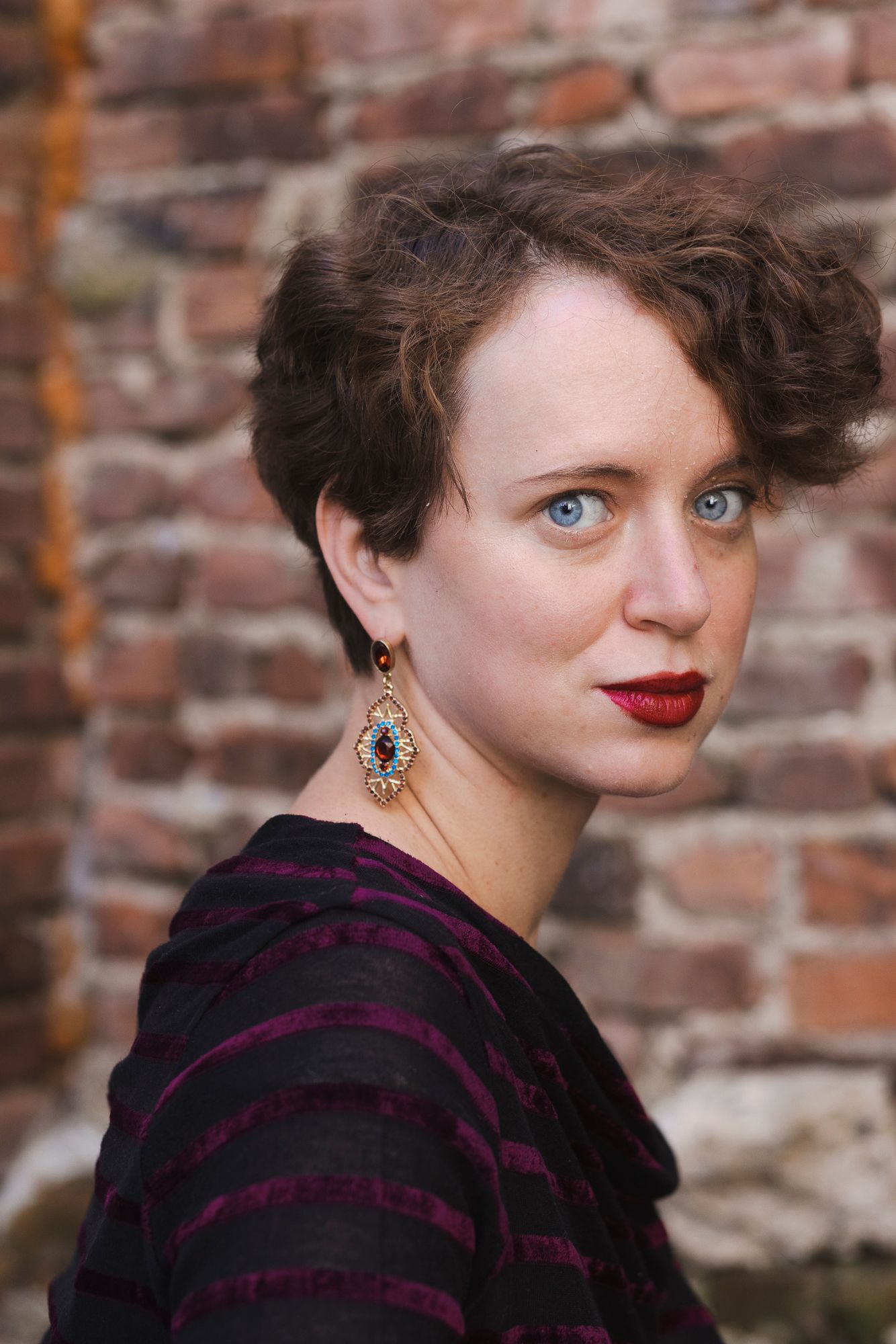
Creating Reality: Self and Truth in the Internet Age
Tara Isabella Burton
Writer and Mercatus Fellow at George Mason University
Friday, April 11 at 3:30 p.m.
Ruane Center for the Humanities 105
In this talk, Tara Isabella Burton will consider at our networked algorithmic age, and the selves and identities we create in it, as downstream of a fundamentally modern (and deeply magical) set of religious ideas about the self, its freedom from embodiment, and its authority to self-divinize through both scientific knowledge and internal gnosis.
Read more about this event.
Tara Isabella Burton is the author of Strange Rites: New Religions for a Godless World and Self-Made: Creating Our Identities from Da Vinci to the Kardashians, as well as the novels Social Creature, The World Cannot Give, and Here in Avalon. She is a Lecturer at the Catholic University and a Mercatus Fellow at George Mason University, and is currently working on a book about magic and modernity.
May 2, 2025
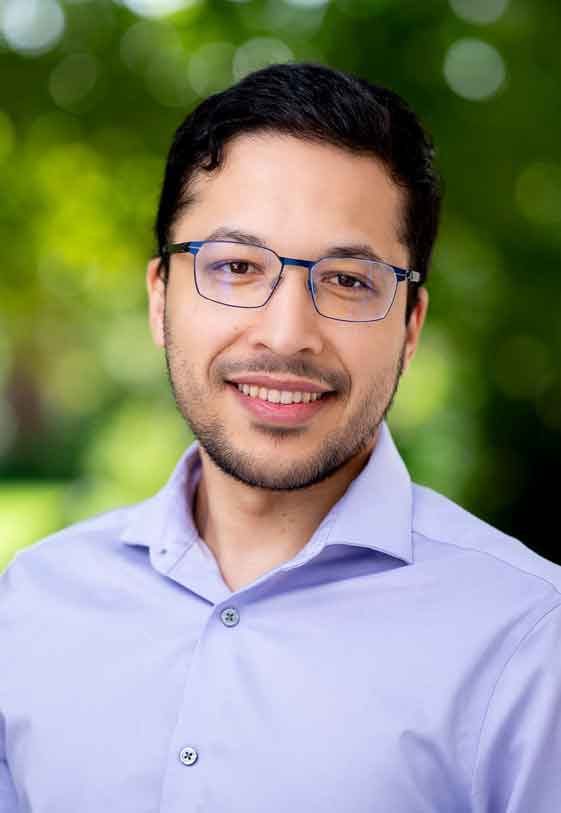
The First Asians in America:
Diego Javier Luis
Assistant Professor of History at Johns Hopkins University
Friday, May 2 at 3:30 p.m.
Ruane Center for the Humanities 105
From 1565 to 1815, Spanish ships known as the Manila galleons sailed between the Philippines and Mexico. They connected Spain’s Asian colonies to the rest of its colonial world and opened a new and unprecedented chapter of global trade across the Pacific Ocean. Through these vessels, the first populations of free and enslaved Asian peoples arrived in the Americas. They originated from South Asia, Japan, and everywhere between. Luis’s talk and book of the same name unearth that history and, in particular, how these diverse Asian subjects confronted colonial race-making and became “chinos” in the Americas.
Read more about this event.
Diego Javier Luis is the Rohrbaugh Family Assistant Professor at Johns Hopkins University. He studies the colonial histories of Latin America and the Pacific World, race-making, and Afro-Asian diasporic convergences.
His first book, The First Asians in the Americas: A Transpacific History, is out with Harvard University Press. He is also the co-creator of The Historian’s Table podcast.





